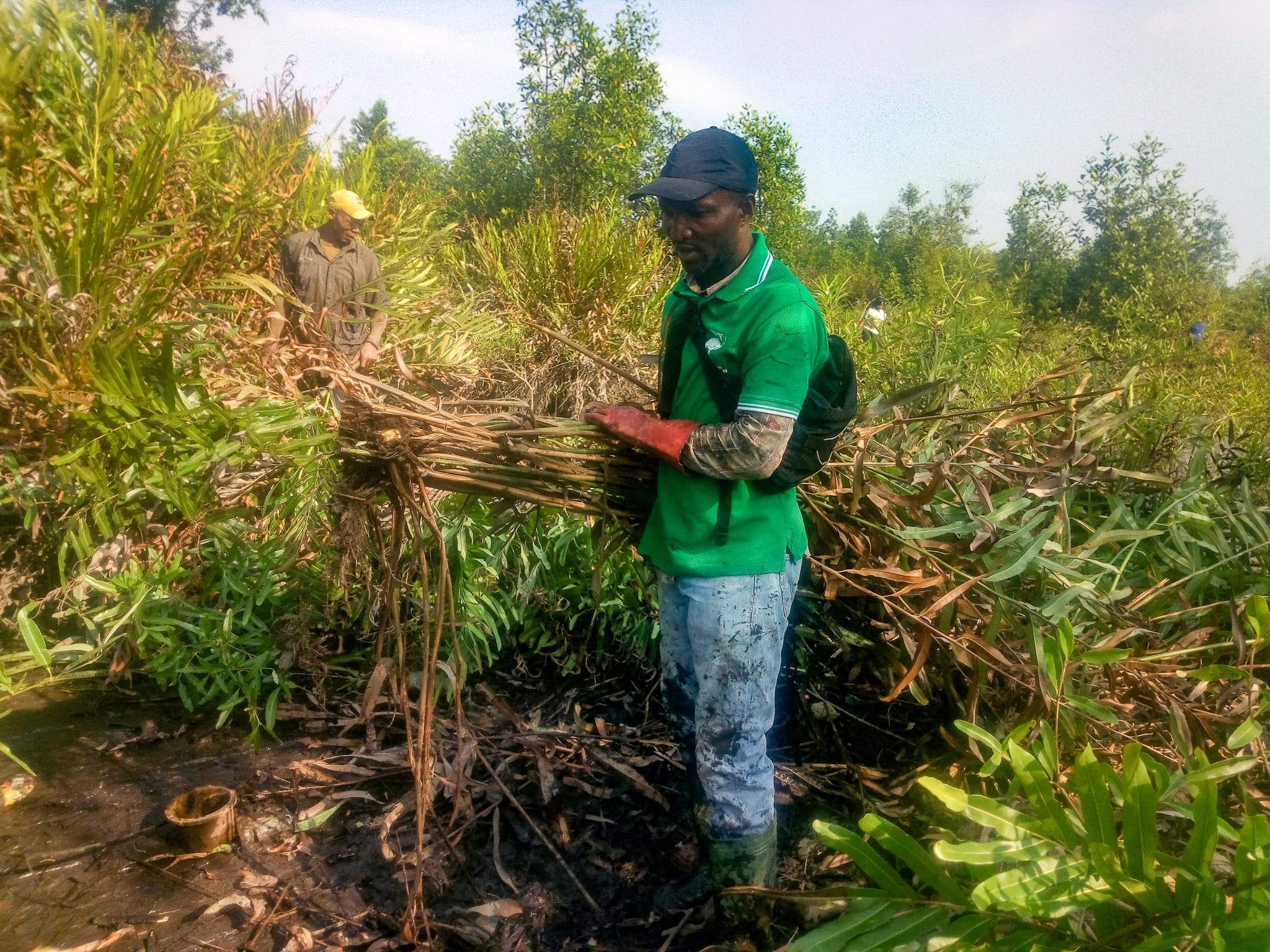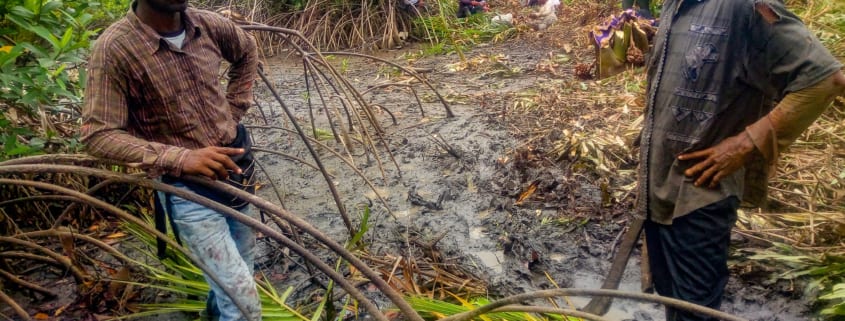Voices from the Rainforest: Eugène Mibog Diyouke, Conservation Fellow
Rainforest Trust projects thrive thanks to the important conservation work of people on the ground. Our Voices from the Rainforest series brings you news from our projects in Latin America, Africa, Asia and the Pacific — from the perspectives of those working in and for the rainforests.

From Economist to Conservationist
Eugène Mibog Diyouke works as the program manager for Cameroon Wildlife Conservation Society (CWCS) based in Mouanko, Cameroon. He has spent the majority of his conservation career in the field conducting research and educating local communities about the importance of sustainability. Eugène involved with the Douala-Edea Wildlife Reserve, a key conservation site in Central Africa that safeguards mangrove forests, freshwater and marine habitats that are critical to the overall sustainability of the coastal land and seascape.
Eugène’s position allows him to work in several capacities within CWCS, including performing rural outreach, establishing and monitoring aquatic forest sample plots and mangrove nurseries, and GIS (Geographic Information System) database management.

Why did you become a conservationist?
I started my career as an economist. I joined CWCS in 2001 as a socioeconomic assistant, working as a rural development agent. During my studies in the field, I faced many challenges connecting the socioeconomic development of local people to conservation of natural resources. I began working with my biologist and forester colleagues to know more about fauna and flora and the best ways to preserve them. I noticed that it was impossible ignore the connection between the sustainability of the environment as a whole and the well-being of local populations. One of the largest challenges I have faced is working with people who were not yet educated on the sustainable utilization of natural resources. It was also difficult to gain the attention of the the local government because they were primarily focused on the prevention of illegal acts. When I started to face is these challenges is when I realized I wanted to become a conversationalist.
“Conservation is important because it helps to keep the global environments and their biodiversity in a good state in terms of quality and quantity and it allows ecological equilibrium and ecosystem services for today and for future generations.”
Tell us about a conservation success in your work.
I participated in all the steps of gazettement (change of status) of the Douala-Edea Wildlife Reserve into a National Park that lead to the success of the project. It was a difficult process because the local populations did not understand the importance of the project. We had to go through several community meetings in order to find a common understanding and reach an agreement. Another time, I felt that I made a difference as a conservationist when I taught the local population to understand the importance of mangrove restoration and gained their participation in planting activities in 2008.
Tell us about a conservation challenge in your work.
The slow adoption of improved smoke ovens for fish and other fishery products by the riverine population of mangrove areas. The new ovens, compared to the traditional ones that local communities use, consume less fuel wood and save more energy. The process has been delayed due to lack of volunteer support that is necessary to construct the ovens and the local population having difficulty accepting the integration process. The hardest part of my job is sensitization, to bring people to change behaviors and adapt to a more sustainable lifestyle.
“What makes me proud to be a Fellow is that my experience as a conservationist will be shared with others.”
Header image: Eugène (left) discussing fieldwork plans with colleague. Photo by Cameroon Wildlife Conservation Society.





